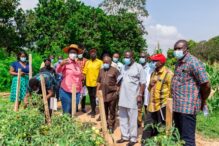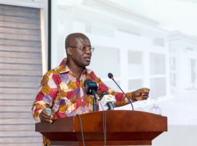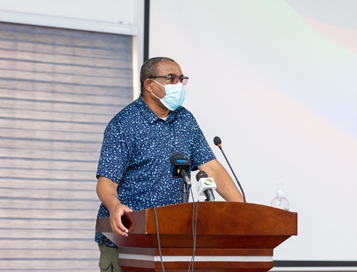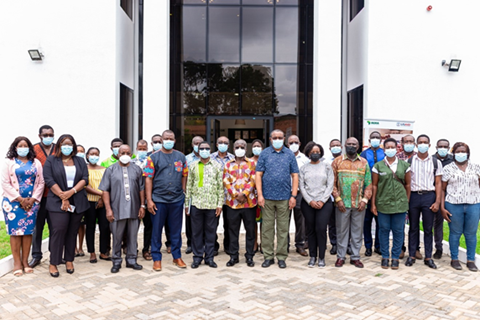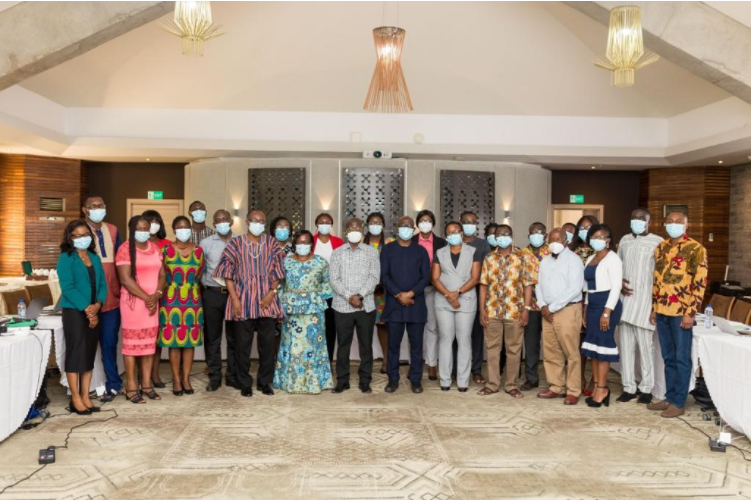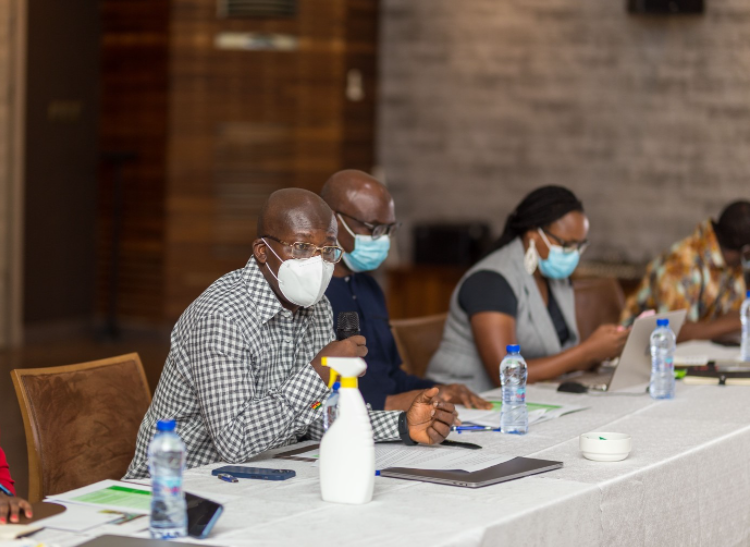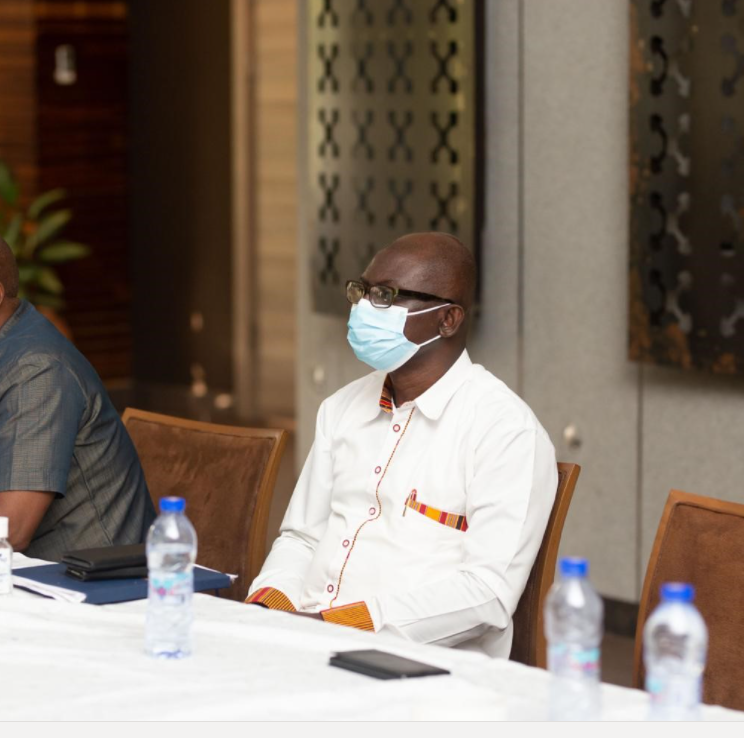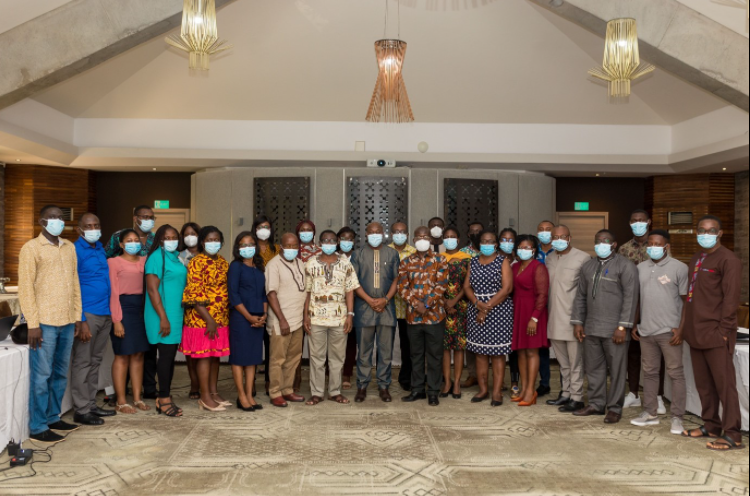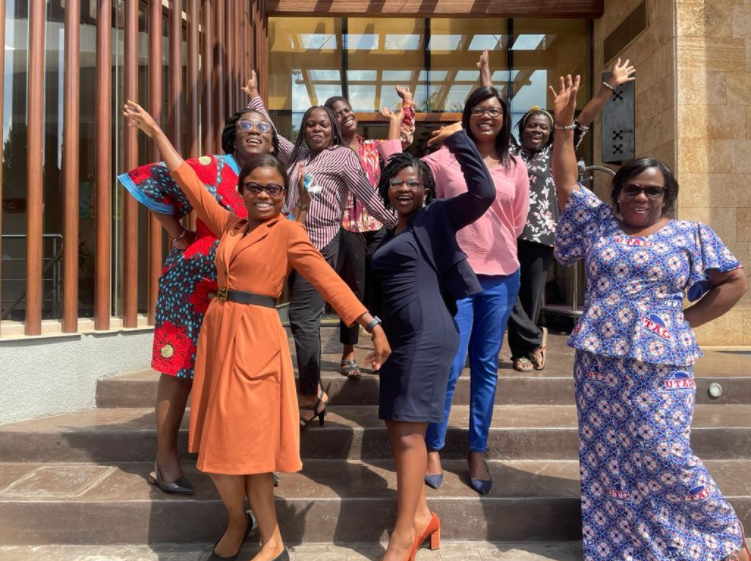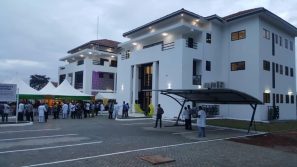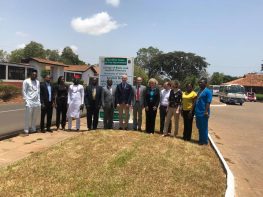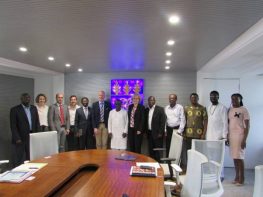WACCI spearheads the adoption of game-changing hybrid tomato varieties to ensure sustainable agriculture for the future
WACCI spearheads the adoption of game-changing hybrid tomato varieties to ensure sustainable agriculture for the future
Three hybrid tomato varieties (AVTO1866 (Ante Dede), AVTO1870 (Legon Tomato) and AVTO1871 (Tomato Queen)) developed by the World Vegetable Centre, a partner of the West Africa Centre for Crop Improvement (WACCI) are being considered for release in Ghana following multilocational trials and submission to the National Variety Release and Registration Committee (NVRRC), Ministry of Food and Agriculture by WACCI .
Professor Eric Yirenkyi Danquah, the Director of WACCI, in an address during a visit by the NVRRC to WACCI charged the Government of Ghana to invest in the agriculture commodity value chain to ensure that “game-changing” crop varieties such as these new tomato hybrids get to farmers across Ghana within the shortest possible time. “If you do not invest in the tomato value chain, these varieties will not go to the farmers in good time. That should not be the case”, Prof. Danquah said.
In his address, Mr. Seth Osei-Akoto, Chairman of the NVRRC highlighted how impressed he was with WACCI’s growth over the past years and praised the Centre for these new tomato hybrids but maintained that there still remained the challenge of getting farmers and consumers to accept hybrid tomato varieties. He charged scientists to develop strategies to understand the farmers needs and develop varieties that could meet those demands.
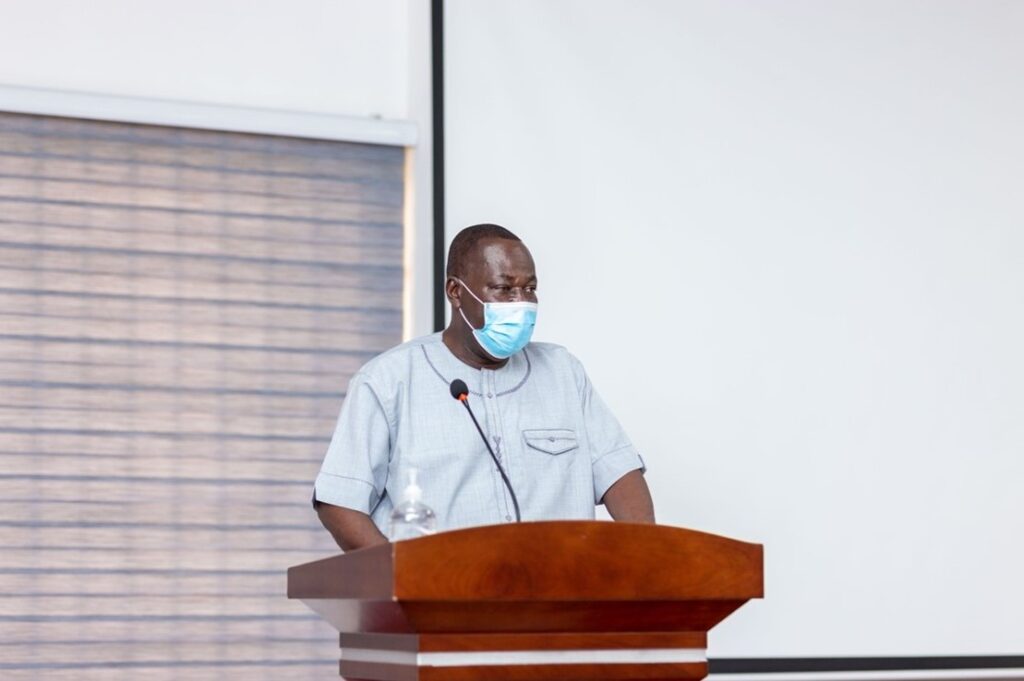
Dr. Leander Dede Melomey, a member of the WACCI hybrid tomato team led the NVRRC delegation to the field to inspect the hybrid tomatoes and later presented research findings from the multi-locational trials the team had conducted. Following rigorous scrutiny, Mr. Osei-Akoto announced that the three hybrid tomato varieties had been approved for recommendation for release and cultivation in the Coastal Savannah regions of Ghana.
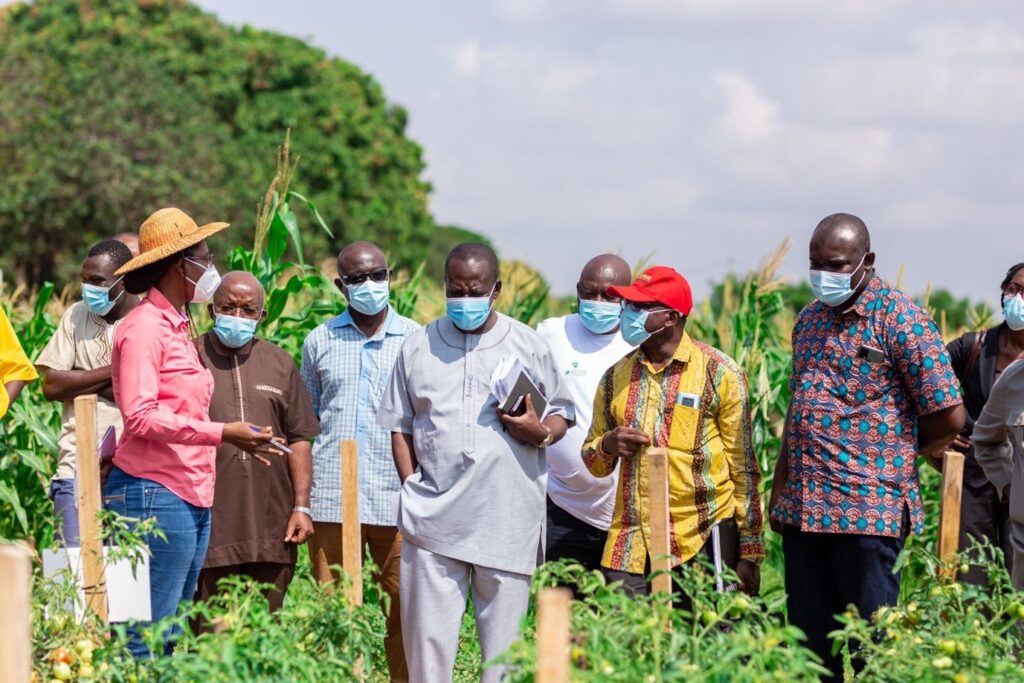
In response to the approval of the hybrid tomato varieties, Professor Danquah congratulated the team and charged the Government of Ghana to fast track the ending of food importation by supporting local institutions like WACCI.
The WACCI hybrid tomato team consists of the following: Dr. Agyemang Danquah [Coordinator, Research (Academic Programmes) WACCI], Dr. Leander Dede Melomey (Postdoctoral Fellow, WACCI) and Professor Eric Yirenkyi Danquah (Director, WACCI).
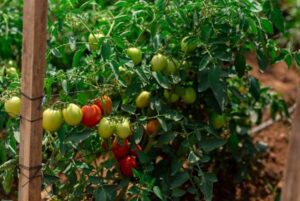
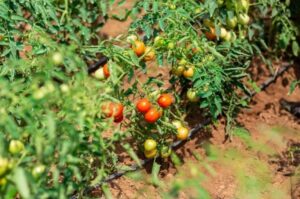
Some of the hybrid tomatoes ready for harvesting
